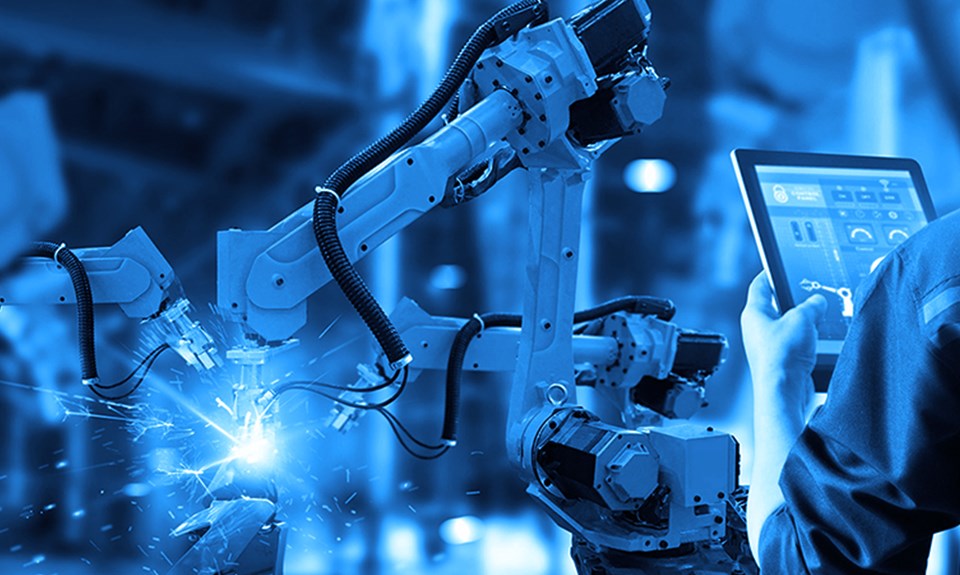AI & HPC Data Centers
Fault Tolerant Solutions
Integrated Memory
SMART Modular’s product offerings are designed for diverse industry applications with CXL®-based solutions, memory modules, and Flash storage for AI, HPC, industrial automation, enterprise data centers, telecom, financial services, and more.


Along with increasing amount of IT devices and systems installed in modern enterprises, more and more data is generated and transported everyday between physical equipment and virtual spaces, like the cloud.
In order to efficiently and effectively store and manage these quantities of data, it’s becoming necessary to build a data infrastructure that can accommodate in-house data centers or that can be outsourced to cloud service providers. Whether the data infrastructure is internal or external, the main purpose is to gather process and store the data under stable and secure conditions to ensure uninterrupted operation for the enterprises.
Data centers can employ a wide variety of different IT equipment, all requiring non-stop power distribution, ventilation, and cooling systems. With all these conditions, data centers must still perform critical applications where memory failures are not an option and highly reliable, uninterrupted service is mandatory.

High-performance computing (HPC) represents a leading solution being used to model and understand complex issues such as weather, agriculture, and space. HPC applications require the ability to process data and perform complex calculations at high speeds in limited timeframes.
For applications such as AI machine/deep learning, data analysis, or medical research, HPC can process massive amount of data in real time. As HPC increases, so will the demands for high performing and reliable memory to deliver on expectations.
HPC solutions consist of three main components: computing, storage, and networking. Each component must keep pace with the others for maximum performance. When compute servers process data at high speed, the high-speed transportation of data between servers and data storage requires infrastructure support, emphasizing the need for high-performing memory.
With the ability to perform complex computing, HPC solutions are used in a variety of applications, from well drilling in the oil and gas industry to biotech research, AI, and self-driving vehicles, among others. These mission-critical applications often require 24/7 operation in harsh environments, making it crucial to utilize durable, stable, and high-performance storage and memory solutions.
Because HPC solutions are deployed in a wide variety of locales, unexpected power loss or vibration can pose a risk. To mitigate these potential issues, a solid data protection mechanism, like that provided by SMART Modular memory, ensures data is safeguarded and remains intact under any circumstance.

Accelerated artificial intelligence (AI) and machine learning (ML) workloads refer to the use of specialized hardware accelerators, such as GPUs (Graphics Processing Units) or TPUs (Tensor Processing Units), to enhance the performance of AI and ML tasks.
Accelerated AI and ML workloads often require high bandwidth memory to keep up with the massive amounts of data being processed.
There's a need for memory architectures that can deliver higher bandwidth to match the computational capabilities of modern accelerators. This could involve innovations in DRAM design, such as wider memory buses, faster memory interfaces, or the integration of high-bandwidth memory (HBM) technologies.
AI is a data-intensive application that generates and processes large amounts of data. SMART Modular's NVDIMM, persistent memory with SafeStor™ encryption, dramatically accelerates system performance for logging, tiering, caching and write buffering, making it an ideal memory solution for AI applications. NVDIMMs are an ideal solution for dramatically accelerating system performance for AI and ML applications.

SMART Modular’s enterprise solutions are purpose-built to deliver unmatched reliability and performance for mission-critical applications. Designed to support the most demanding advanced computing environments, these solutions prioritize stability and continuous operation, ensuring seamless functionality even under extreme conditions.
With a focus on long-term reliability, SMART Modular integrates advanced testing methodologies to guarantee that only the most dependable memory modules reach customers, providing peace of mind and enhanced system integrity in enterprise-level applications.
SMART Modular's enterprise memory is used for mission-critical applications where memory failures are not an option and highly reliable, uninterrupted compute service is mandatory. The modules undergo a rigorous and comprehensive three-part enterprise testing process which includes stress, temperature, and time.
SMART’s unique and proven screening process using custom-built test equipment and software results in only the highest quality, most reliable memory modules shipping to customers.

Whether it’s a mid-size health insurance company or a large-scale e-commerce service provider, storage servers play an important role in terms of data management for any business operation. Along with the increasing amounts of data generated and transported through network connections, it’s crucial to efficiently process and store the data, while enabling data access, yet maintaining security.
Whatever the use or data applications, storage servers can are used where a large amount of data is transmitted, gathered and processed for analysis and business operations.
In applications, like commercial auto fleet telematics, where continuous data processing and feedback is required, it’s crucial to build a storage system that guarantees stable and reliable performance at all times. In mission critical and vital business applications, storage servers need to be equipped with memory that provides key features such as power loss data protection, encryption protection, and reliable performance for the storage servers to maintain data validity.
In addition to traditional DRAM, storage systems also require reliable Flash devices in the storage server management unit to store operating system and application codes so it can capture operation log files and secure critical metadata from system memory in a sudden system power loss event.

From small industrial components deployed in automation systems to large equipment used for oil drilling, project operations are asked to provide precise instructions, occasionally in harsh environments. Therefore, it is critical to maintain the accuracy of data output in addition to maintaining continuous, stable operating performance.
Memory modules must withstand extreme temperatures, shock, vibration, and electromagnetic interference (EMI). Both volatile and non-volatile memory technologies are engineered for rugged use, often with specialized features like enhanced error correction and secure mounting.
As tasks in industrial applications become more complex, they still require high-capacity performance and reliable computing to handle light to heavy workloads, with work cycles that vary from hours to around the clock. Access to systems that operate in harsh environments can be difficult, making it essential to design durable systems with long operating lives that can withstand a variety of environmental conditions.
Most data generated from industrial applications is high-value and sensitive, requiring specific safeguards for access and securing the data. It is crucial to build a storage solution with a small footprint to fit into space-constrained locations while providing reliability, power efficiency, and unbreakable data encryption security.

In trading, microseconds can determine profitability. Traditional architectures, which tightly couple memory to individual CPUs, create bottlenecks and increase latency as data-intensive workloads grow. Memory pooling, especially when powered by high-speed interconnects like Compute Express Link (CXL), allows for low-latency communication between devices like CPUs and GPUs.
SMART CXL® Add In Cards (AICs) are an innovative approach to maximizing memory capacity with minimal power and latency in servers for Fintech applications. The innovative memory technology enables financial institutions and quantitative analysts to break through traditional limits imposed by available attached memory slots. SMART CXL AICs enable Terabytes of capacity per chassis utilizing PCIe Gen5 slots and an industry-standard CXL 2.0 compliant controller to eliminate traditional memory bottlenecks.
Financial forecasting and modeling, high-frequency trading, and real-time transaction processing for fraud detection are at the core of today’s global economy. To process vast amounts of data in a flash requires massive memory capacity to enable the processors to operate a peak bandwidth.
The challenge is three-fold: available memory slots for attached DRAM modules are limited; the cost of adding more CPUs is cost and power prohibitive; and caching latency through SSDs is too slow.
SMART CXL AICs deliver a competitive edge throughout the Fintech value chain from system integrator to end user.

With the rapid rise of IoT and IIoT, the demand for connectivity has transformed networking. Today’s networks are scaling at an exponential rate, processing huge amounts of data that are stored for analysis. Reliable, proven memory is vital to ensure the hyper-fast transmission of all that data, as well as storage of the data exchanged between edge devices and network hubs.
Whether the scale of network is between two locations or built for thousands of connected devices in different places around the world, there will be huge amounts of data constantly being processed whenever the network is running. That is why the right memory solutions are so important – to ensure data will be processed quickly and stored securely regardless of the demand placed on the network.
5G wireless network technology and improved fiber optics are bringing unlimited possibilities and benefits to consumers. More importantly, 5G will also provide increased value to commercial applications in industries ranging from telemedicine, virtual and augmented reality (AR/VR) and machine-to-machine (M2M) communication. Applications that leverage 5G networks require vast amounts of data. Whether it’s a large work station or small mobile device, the demand for fast and stable data processing with reliable storage has exponentially increased with 5G. Memory solutions can make all the difference in network speed and reliability.
Telecom operates 24/7, carrying and providing data around the globe. Maintaining that level of continuous computing capability while ensuring connectivity, integration, and security is a huge challenge. In addition, sudden power loss or unexpected memory failure are also important considerations when selecting components for highly-networked telecommunications systems.
5G is expected to support a variety of applications related to IoT, remote education, 3-D visualization, and AR/VR. Applications such as AI also require massive deep machine learning, and this type of data-heavy technology must operate on a system with stable, high-computing performance. With telecom networks covering vast amounts of geography, the support system must be robust.
Designing with components that can offer solid transmission protection and environmental endurance across widely fluctuating temperatures ensures stable operation under any condition.

Whether it’s operating a single retail store or as part of a chain, the Point-of-Sales (POS) system is the center of the business operation, integrating all processes from a sales transaction. From inventory checks, customer purchase information, or keyed-in credit card payments, an efficient point-of-sales system plays a critical role in retail operation performance.
Moreover, with the development of artificial intelligence of things (AIoT) technology, a powerful POS server for self-service operations, such as with a kiosk or ATM, can integrate advanced surveillance systems with content and visual analysis.
As POS systems process critical information during a transaction, it is necessary to deploy a reliable and robust system that can perform under operational stress or sudden power loss. Data gathering from a POS system provides deeper consumer insights, enabling businesses to anticipate consumer demand. POS systems also require high-speed computing to handle intensive workloads and provide timely responses to urgent situations that may arise in retail settings.
Like any other physical device, a POS system may require software upgrades, component replacements, or add-ins from time to time. When such situations occur, components like memory must be flexible, compatible, and reliable during the maintenance or upgrade process to ensure a smooth transition.

Use of digital and video monitoring has expanded by leaps and bounds, and has become more sophisticated for transmitting digital signals. Monitoring systems are now expected to provide megapixel quality on a 24/7 basis, whether it’s for safety, personal or business protection, crime prevention, or for other types of content analysis such as facial analysis and streaming data.
When not transmitting recorded images by digital signal, the surveillance system in the analog setting functions as a monitoring tool for safety concerns. In either mode of operation, SMART Modular offers a variety of storage solutions for high-performance monitoring needs.
With content analysis features, video footage is now considered valuable for business optimization as well as for law enforcement purposes. Clear, clean video live-streaming and high-performance storage are critical factors for enabling accurate video identification. Surveillance monitoring operates continuously, day and night, making these factors essential for reliable operations.
Given the non-stop recording and streaming demands, the longevity and stability of both storage and memory solutions are crucial to meeting the needs of 24/7 recording workloads. Additionally, data encryption plays a key role in ensuring personal privacy in security situations and keeping sensitive data secured.
SMART Modular Technologies helps customers around the world enable high performance computing through the design, development, and advanced packaging of integrated memory solutions. Our portfolio ranges from today’s leading edge memory technologies to standard and legacy DRAM and Flash storage products. For more than three decades, we’ve provided standard, ruggedized, and custom memory and storage solutions that meet the needs of diverse applications in high-growth markets. Contact us today for more information.


At Penguin, our team designs, builds, deploys, and manages high-performance, high-availability HPC & AI enterprise solutions, empowering customers to achieve their breakthrough innovations.
Reach out today and let's discuss your infrastructure solution project needs.